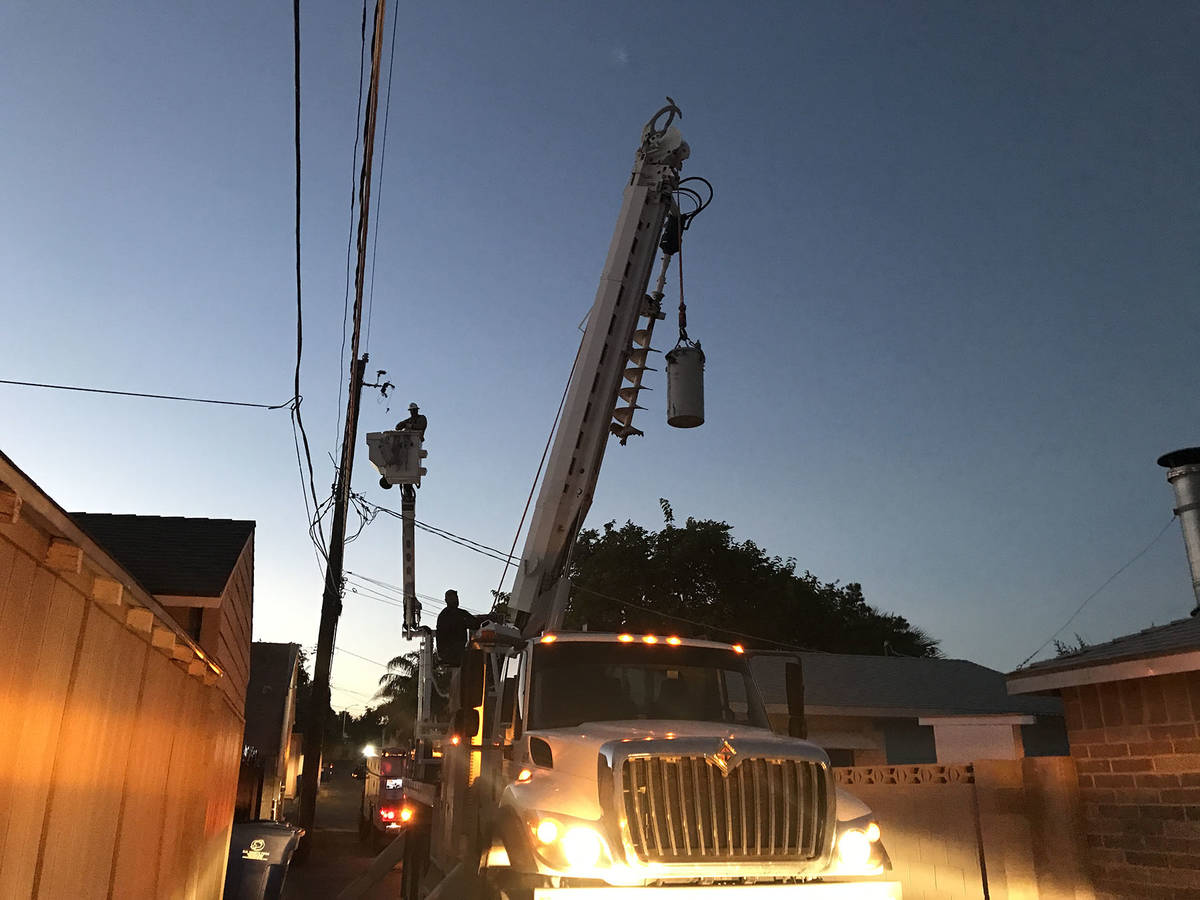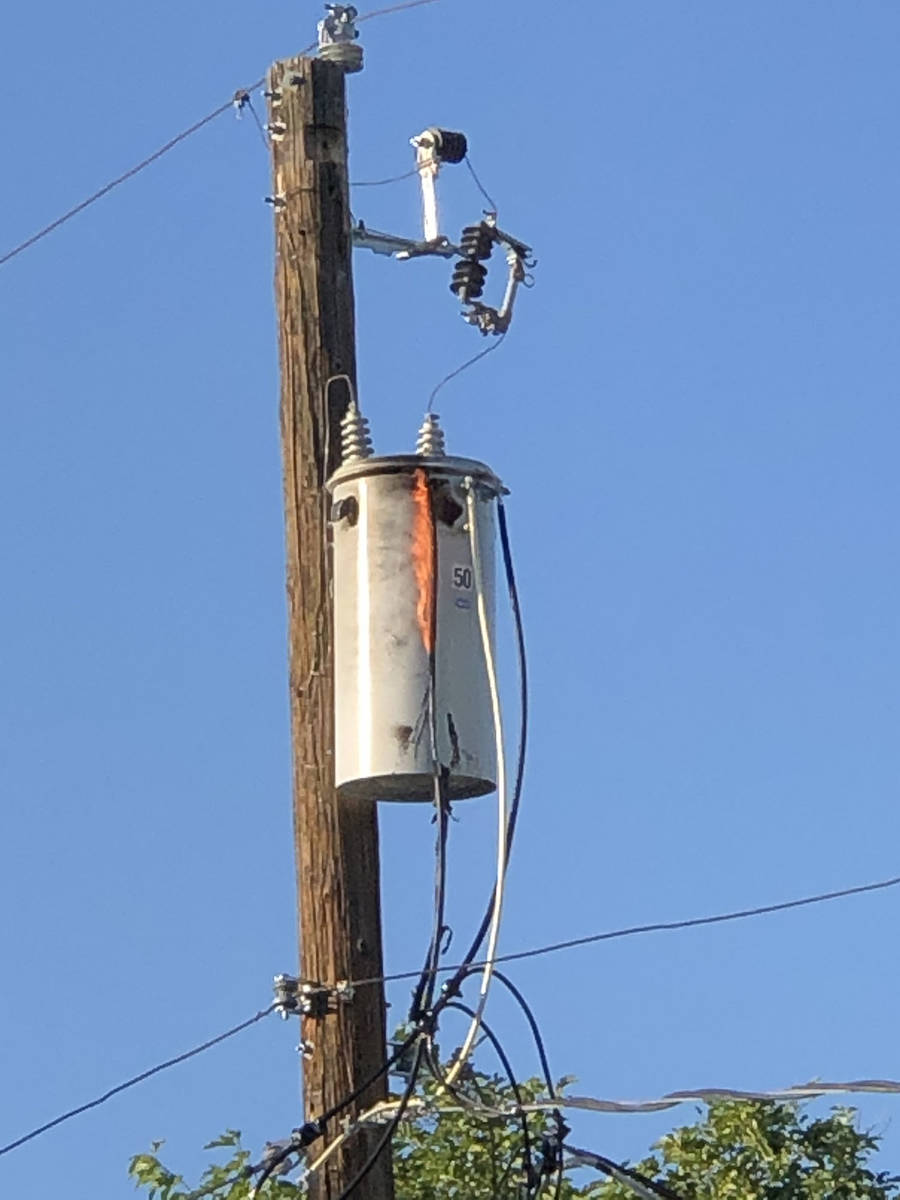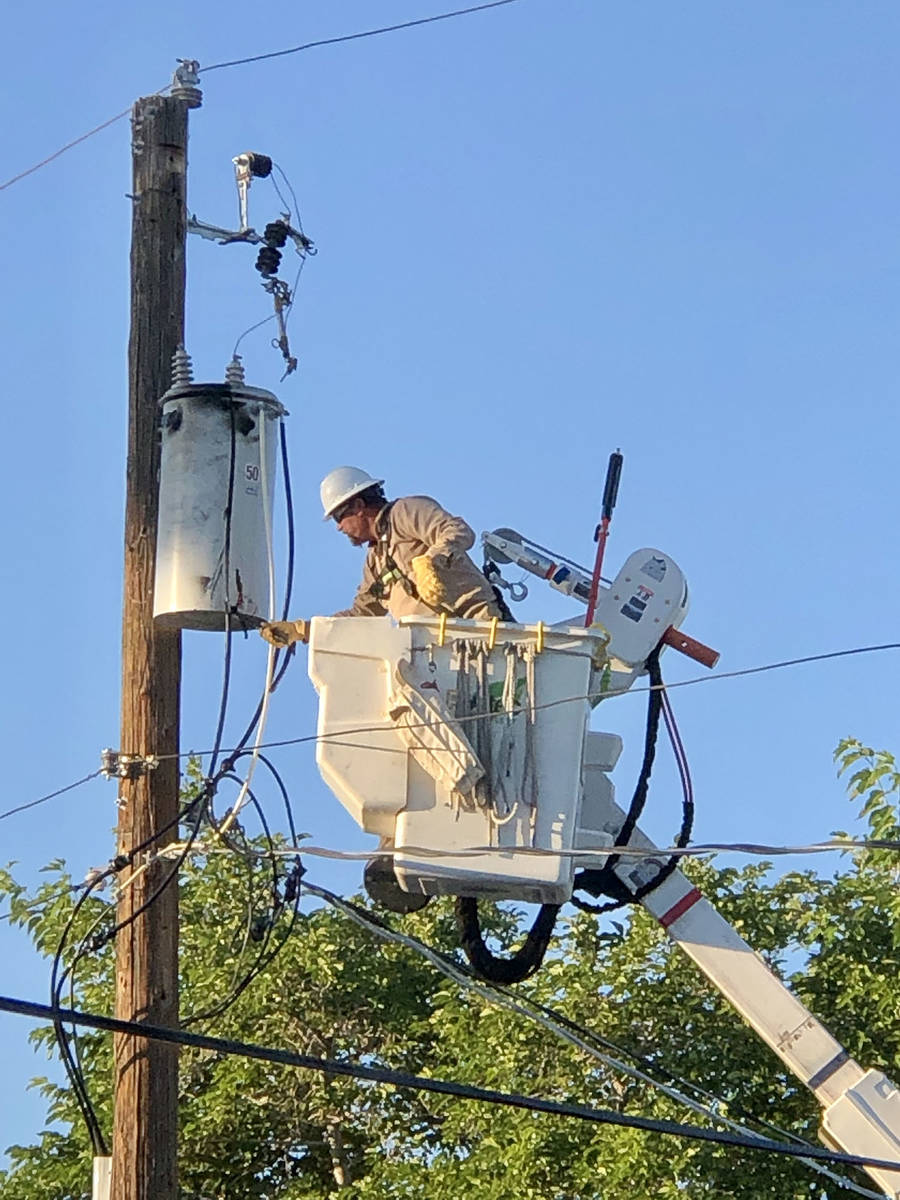Transformer fire sparks power usage questions
An unseasonably hot end of May/early June spiked more than daily temperatures. A transformer “can” caught fire on a utility pole in the alley between Avenues I and K. This incident particularly caught my attention because it was right next to my backyard.
The Boulder City Fire, Police and city utilities departments responded swiftly and skillfully, keeping residents at a distance, with no surrounding damage or injuries. After a few hours, power to the seven homes impacted by the fire was restored and the happy hum of air-conditioning units restarted, cooling down our now uncomfortably hot houses.
Growing up in Brooklyn, New York, I’m familiar with summer blackouts, rolling blackouts and even transformer explosions during heat waves. Outdated and overloaded power grids are an unfortunate reality in older, heavily populated cities. But in Boulder City?
Understandably, with any system, maintenance is required, parts can be faulty, accidents happen, etc. — and so it goes with electrical equipment. As PopularMechanics.com explains: “As transformers detect an energy spike, they’re programmed to turn off, but it can take up to 60 milliseconds for the shutdown … they still may be too slow to stop the electrical overload. A chamber (can or tank) full of several gallons of mineral oil keeps the circuits cool, but given too much electricity, the circuits fry and melt, failing in a shower of sparks and setting the mineral oil aflame.”
Gratefully, transformer fires and blackouts are not commonplace in our city. Yet there I stood staring up at a transformer ablaze, just feet from my lawn. These things happen, I thought, but wondered if we humans had anything to do with it. Is it possible residential power usage during a heat wave could tax the electrical transmission lines/grids and in some way lend to causing a fire?
I posed this question to Dennis Porter, utilities director with the Boulder City Utilities Department. “Yes, that is certainly a possibility. The older the transmission lines, the more likely they are to experience a failure or fire,” he said.
Knowing definitively that how we use power can adversely impact the grid, I asked Porter if there’s a better time of day to run appliances during intense heat. “Absolutely,” Porter said. “We recommend using appliances at night when possible, especially if it is an appliance that uses heat, like a dryer or dishwasher.
“Customers use less power at night, so it’s less taxing on the system as a whole,” he added.
Here are some handy hot weather tips from our utility company to help us save energy and money:
■ Turn off lights and appliances when not in use, including the computer.
■ Do not turn off your air conditioner when you are not home.
■ Vacuum refrigerator coils to improve air flow.
■ Use major appliances as late in the evening as possible.
■ Close doors to rooms that are not being used.
■ Weather strip doors and caulk windows.
■ Use room fans to reduce the feeling of heat and to circulate air.
■ Have the air conditioner and heating system serviced annually.
■ Test and seal duct work.
■ Use window screens or films to reduce heat entering the home.
More tips can be found on the city’s webpage at http://bcnv.org/DocumentCenter/View/657/Conservation-Tips-PDF.
Lisa LaPlante, communications manager for the city, shared resident assistance information, the Energy Assistance Program.
“If you are struggling to pay utility bills, you may be eligible for the Nevada Energy Assistance Program. Those who are approved by the state’s EAP will automatically be enrolled into the Boulder City Energy Assistance Program and receive a 35 percent discount on all services except the universal energy charge,” LaPlante said. “Applications for the state energy assistance program can be found at https://dwss.nv.gov or http://www.bcnv.org. Applications are also available at City Hall in the utility billing office. If you need assistance or would like to request an application via regular mail, please contact the Boulder City utility billing office at 702-293-9244, option 2.
“During this time, we are suspending utility disconnections on a case-by-case basis. You must call 702-293-9244 to discuss,” LaPlante added.
Norma Vally is a seasoned veteran of home improvement; her career includes four seasons as host of Discovery Home Channel’s Emmy-nominated series “Toolbelt Diva.” A columnist and author, Vally splits her time in Southern Nevada, Los Angeles and New York City. Follow her on Facebook at Norma Vally “Toolbelt Diva” and visit her at www.NormaVally.com. Email Norma@NormaVally.com.
















